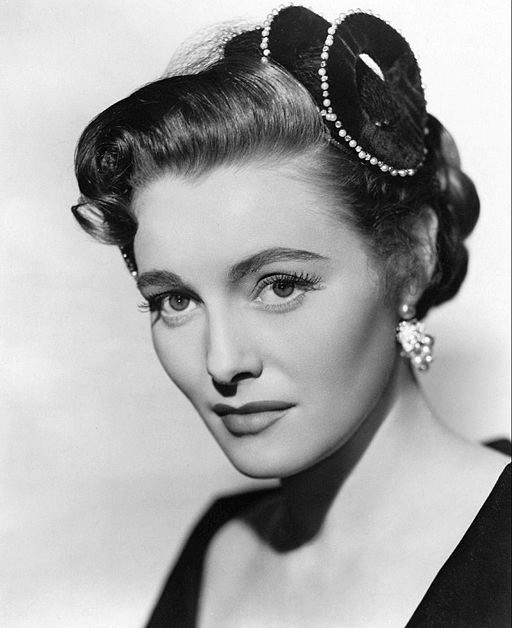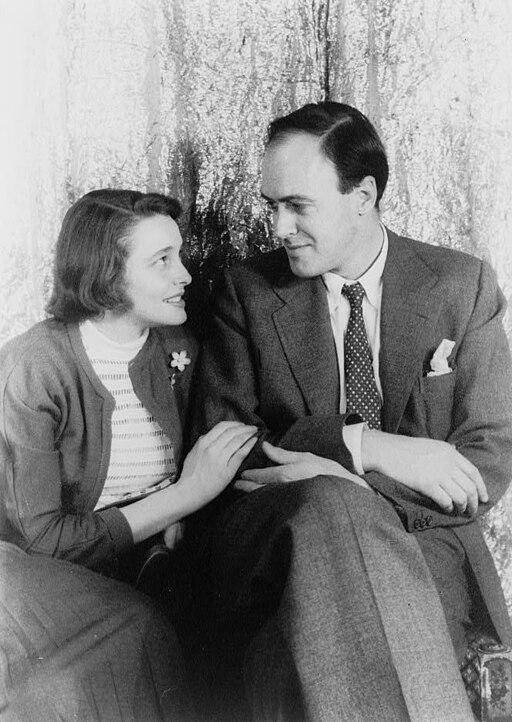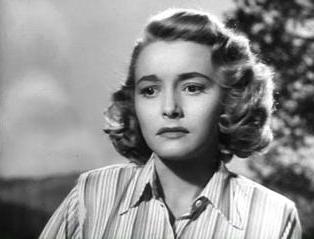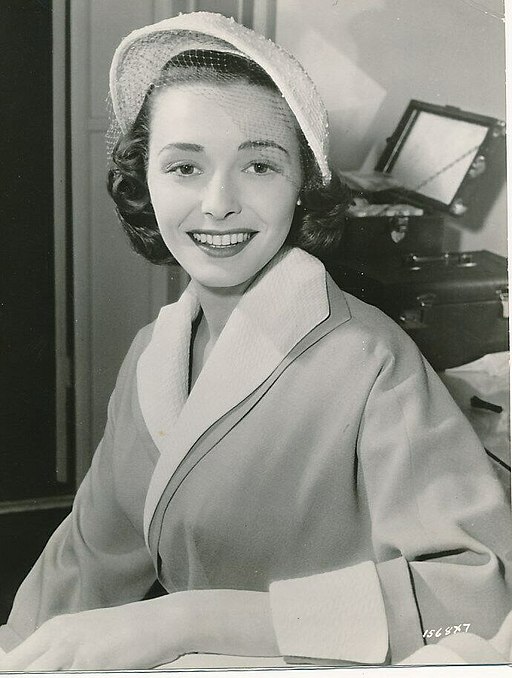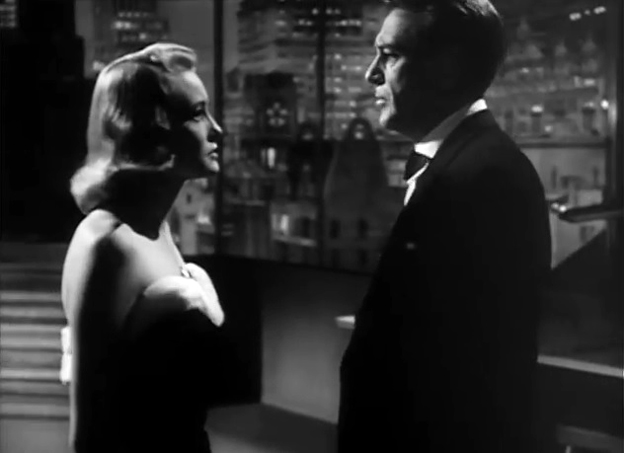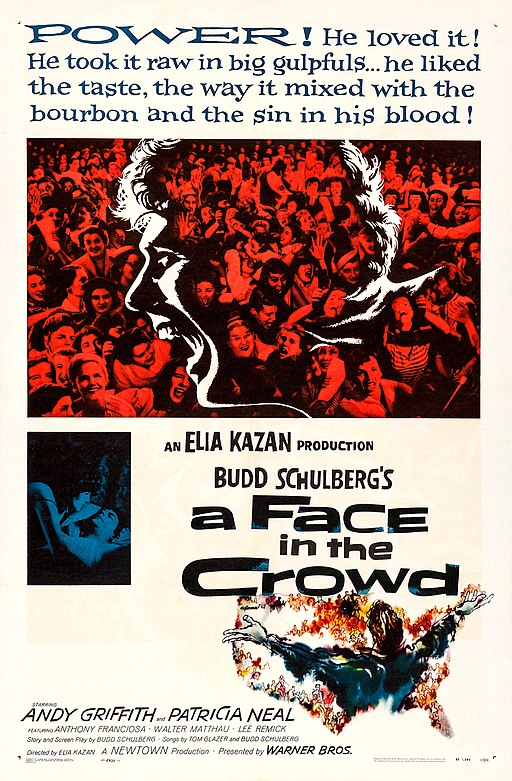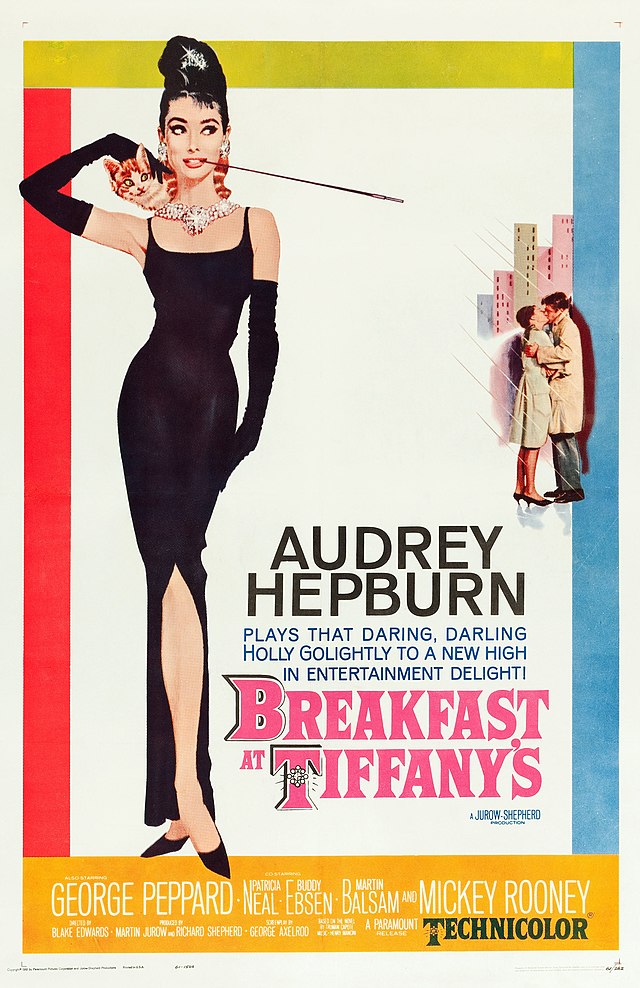Patricia Neal
back| Full Name | Patsy Louise Neal |
| Stage Name | Patricia Neal |
| Born | January 20, 1926 |
| Birthplace | Packard, Kentucky, USA |
| Died | August 8, 2010 |
| Buried | Abbey of Regina Laudis in Bethlehem, Connecticut |
| Married to | Roald Dahl (1953–1983) |
| Children | Olivia Twenty Dahl (who died at age seven of measles encephalitis), Chantal Sophia |
| Notable films | The Day the Earth Stood Still (1951) - A Face in the Crowd (1957) - Breakfast at Tiffany's (1961) - Hud (1963) |
Patricia Neal
The Resilient Actress
Patricia Neal's career was marked by her compelling performances across a range of genres, earning her a place among Hollywood's esteemed actresses. Despite facing personal tragedies, including the death of her daughter Olivia and a series of strokes in 1965 that left her temporarily paralyzed and unable to speak, Neal demonstrated remarkable resilience.
She made a successful return to acting, continuing to perform in films and television while also becoming an advocate for stroke rehabilitation and awareness.
Related
Patricia Neal (1926 – 2010)
Biography and Career Overview
Patricia Neal's journey through life was as compelling and profound as the characters she portrayed on screen, marked by both remarkable achievements and profound adversities. Her story is one of resilience, talent, and unyielding spirit, which left an indelible mark on the world of cinema and on those who knew her personally.
Early Years and Ascent to Stardom
Born Patsy Louise Neal on January 20, 1926, in Packard, Kentucky, Neal grew up in a mining community before her family moved to Knoxville, Tennessee. From a young age, Neal showed a keen interest in acting, participating in local theater productions. Her passion and talent for the performing arts were evident, leading her to pursue a degree in drama from Northwestern University.
After college, Neal's ambition drove her to New York City, where her career began to flourish. She made her Broadway debut in 1946, quickly gaining recognition for her powerful performances. Neal's success on stage caught the attention of Hollywood, and by the late 1940s, she had signed a film contract with Warner Bros., marking the start of her illustrious film career.
Path Towards Success
Neal's early years in Hollywood were marked by a series of roles that showcased her range and depth as an actress. Her breakthrough came with her performance in "The Fountainhead" (1949), opposite Gary Cooper, with whom she had a passionate and tumultuous affair. This role established her as a serious actress capable of handling complex characters.
Throughout the 1950s and 1960s, Neal continued to build her career with a mix of film and stage roles. Her portrayal in "A Face in the Crowd" (1957) earned critical acclaim, and her performance in "Hud" (1963), alongside Paul Newman, won her the Academy Award for Best Actress. Neal's ability to convey strength and vulnerability made her one of the most respected actresses of her time.
Personal Life and Marriages
Patricia Neal's personal life was as dramatic as her roles on screen. Her affair with Gary Cooper was followed by her marriage to British author Roald Dahl in 1953. The couple had five children together, but their life was filled with both happiness and heartache. They faced the tragic death of their daughter Olivia to measles encephalitis and the severe injuries of their son Theo in an accident.
Neal's marriage to Dahl was both complex and creative, with Dahl supporting her through her most challenging times, including her health crises. However, the marriage ended in divorce in 1983, after 30 years, amid Dahl's infidelity.
Passions and Advocacy
Beyond her acting career, Neal was passionate about various causes, including stroke rehabilitation and awareness. After suffering a series of strokes in 1965 that left her in a coma, Neal faced a difficult recovery. With Dahl's help, she relearned to walk and talk, demonstrating an extraordinary determination. Her comeback to acting was triumphant, earning her a new generation of fans and respect for her advocacy work. Neal became a symbol of hope and resilience, speaking openly about her experiences to help others.
Death and Legacy
Patricia Neal passed away on August 8, 2010, at the age of 84, in Edgartown, Massachusetts. The cause of death was lung cancer, a final challenge in a life filled with both triumphs and trials. Neal's legacy is preserved through her memorable performances, her contributions to the arts, and her advocacy for health issues.
Neal's story is a testament to the human spirit's capacity for endurance, creativity, and love. Her life, marked by significant achievements and profound losses, continues to inspire those who face their adversities with courage and grace. Patricia Neal remains a towering figure in the history of American cinema, celebrated for her indomitable spirit, her exceptional talent, and her enduring impact on the lives of many.
Patricia Neal receives her Academy Award:
Notable Movies featuring Patricia Neal:
1949
- "John Loves Mary": Neal made her screen debut in this romantic comedy about a soldier who returns home to discover his friend has married his fiancée in his absence, purely to assist him with housing.
- "The Fountainhead": In this adaptation of Ayn Rand's novel, Neal plays Dominique Francon, an independent and sophisticated woman who becomes entangled with an uncompromising architect, Howard Roark (played by Gary Cooper).
1951
- "The Day the Earth Stood Still": A landmark in science fiction cinema, Neal stars as Helen Benson, one of the first humans to make contact with an extraterrestrial visitor and his powerful robot, urging peace on Earth.
1952
- "Diplomatic Courier": Neal features in this Cold War thriller involving espionage and international intrigue, portraying Joan Ross, a woman mixed up in a plot to smuggle important documents.
1957
- "A Face in the Crowd": Neal delivers a powerful performance as Marcia Jeffries, who discovers a charismatic drifter, played by Andy Griffith, and helps him rise to media stardom, only to see his corrupt nature unfold.
1961
- "Breakfast at Tiffany's": In this classic, Neal plays a sophisticated socialite, 2E Failenson, who is in a complicated relationship with the film's protagonist, played by George Peppard.
1963
- "Hud": This film earned Neal an Academy Award for Best Actress for her role as Alma Brown, a housekeeper who resists the charms of Paul Newman's amoral character, Hud Bannon, in this stark drama set in Texas.
1964
- "The Subject Was Roses": Returning to the screen after her recovery from a series of strokes, Neal plays Nettie Cleary, who faces the challenges of adjusting to her son's return home from World War II.
1968
- "The Night Digger": Neal stars in this British psychological horror film as Maura Prince, a woman living in a deteriorating mansion who becomes involved with a mysterious and troubled young man.
1973
- "The Homecoming: A Christmas Story": This TV movie, which served as the pilot for "The Waltons" TV series, features Neal as Olivia Walton, the matriarch of a rural American family during the Great Depression.
1978
- "A Love Affair: The Eleanor and Lou Gehrig Story": Neal portrays Eleanor Gehrig in this biographical TV movie, focusing on her relationship with the legendary baseball player Lou Gehrig and his battle with ALS.
1979
- "All Quiet on the Western Front": In this television film adaptation of Erich Maria Remarque's novel, Neal plays Paul's mother, bringing a poignant touch to the tragic story of young soldiers in World War I.
Patricia Neal’s Marriage with Roald Dahl:
Patricia Neal's marriage to Roald Dahl, the renowned British author, was a significant chapter in her life, marked by both deep love and profound challenges. The couple married in 1953 and their union lasted for 30 years, until their divorce in 1983. Their relationship was complex, filled with creative collaboration, personal tragedy, and eventual estrangement, yet it also demonstrated their initial deep affection and mutual respect for each other's talents.
Love and Collaboration
Neal and Dahl met in New York City when Neal was already an established actress and Dahl was a burgeoning writer. Their early years were filled with mutual admiration and support. Dahl contributed to Neal's career by writing screenplays and stories that showcased her talent, while Neal supported Dahl's burgeoning literary career. Their creative lives were intertwined, with each finding inspiration in the other.
Tragedy and Strength
The couple faced unimaginable personal tragedies that tested their relationship. In 1960, their son Theo was severely injured when his baby carriage was struck by a taxi, leading to a prolonged recovery. In 1962, their oldest daughter, Olivia, died from measles encephalitis at the age of seven, a loss that devastated both Neal and Dahl and had a lasting impact on their lives and marriage.
Perhaps the most defining moment of their marriage came in 1965 when Neal suffered three massive strokes while pregnant with their fifth child, Lucy. Neal was left partially paralyzed and speechless, and her prognosis was grim. However, Dahl's response to Neal's condition was to devise a rigorous and innovative rehabilitation program, which included therapy and daily exercises. His dedication to her recovery was instrumental in Neal's remarkable return to acting, against all odds.
Strain and Separation
Despite their strong bond and shared experiences, the marriage was not without its problems. Dahl's manner could be domineering and critical, and Neal faced challenges living with his exacting standards. The strains on their marriage were compounded by Dahl's infidelity, notably with Neal's friend, Felicity "Liccy" Crosland, whom Dahl would later marry after divorcing Neal.
Analysis of Patricia Neal’s Acting Style:
Patricia Neal's acting style is emblematic of both the Golden Age of Hollywood and the evolving sensibilities of cinema that followed. Her performances are distinguished by a naturalistic approach, characterized by subtlety, depth, and a profound emotional resonance. Neal's style, deeply rooted in the psychological complexities of her characters, showcased her ability to convey nuanced emotions without resorting to overt dramatization.
Naturalism and Authenticity
Neal's screen presence was marked by a remarkable naturalism. She possessed the rare ability to bring authenticity to her roles, often blurring the lines between performance and reality. This authenticity made her characters relatable and deeply human. Whether portraying the sophisticated urbanite or the resilient rural woman, Neal imbued her characters with a sense of lived experience, making her performances compelling and believable.
Subtlety and Emotional Depth
One of the hallmarks of Neal's acting was her mastery of subtlety. She could communicate a character's inner turmoil or joy with minimalistic gestures—a glance, a slight tremor in her voice, or a hesitant smile. This understated approach allowed audiences to perceive the complexity of her characters' emotions, inviting viewers to engage more deeply with the story being told.
Strength and Vulnerability
Neal often portrayed women of strong will and resilience, yet she always allowed a glimpse of their underlying vulnerability. This interplay between strength and vulnerability became a signature aspect of her performances, enriching her characters with a multidimensional quality. In "Hud," for instance, her portrayal of Alma Brown epitomizes this balance, as she navigates the emotional landscape of a woman standing her ground against Hud's brutish advances while revealing the fragility and longing beneath her stoic exterior.
Voice and Physicality
Neal's voice was another potent tool in her acting repertoire. With its distinctive timbre and modulation, she could convey a wide range of emotions, from warmth and affection to scorn and bitterness. Her physicality, too, was integral to her performances. Neal's movements and posture contributed to the overall portrayal of her characters, often signaling their socio-economic status, emotional state, or personal history without a word being spoken.
Evolution Over Time
Over the years, Neal's acting style evolved, reflecting her personal growth and the changing landscape of American cinema. Despite facing significant personal and health challenges, including a series of strokes that temporarily impaired her speech and movement, Neal's performances in later years continued to exhibit depth and resilience. Her comeback roles demonstrated not only her unwavering dedication to her craft but also a richer layer of emotional depth, informed by her own experiences of suffering and recovery.
Memorable Quotes from Patricia Neal:
- On Resilience and Recovery: "A strong positive mental attitude will create more miracles than any wonder drug." This quote reflects Neal's incredible strength and determination in facing life's challenges, including her recovery from severe strokes.
- On Acting: "Acting is easier – writing is more creative. The lazy man vies with the industrious." Neal's reflection on the nature of acting versus writing showcases her respect for the creative process and the effort involved in bringing stories to life, whether on the page or the screen.
- On Life's Challenges: "I may be a star someday, but I'll always be mother to my children." Despite her success and the demands of her career, Neal placed great importance on her role as a mother, emphasizing the grounding effect her family had on her life.
- On Love and Loss: "As for me, I've loved before and been deliberately betrayed. The one thing of which I am certain is that I can love again." This quote speaks to Neal's capacity for love and forgiveness, even in the face of personal betrayal and heartache.
- On Personal Growth: "At a certain point in life, you either have what you want or you believe what you want." Neal's pragmatic approach to life and happiness reflects her belief in acceptance and making peace with one's circumstances.
- On Her Strokes and Comeback: "I've had a lot of unhappiness in my life — and a lot of happiness. Who doesn't? Maybe I've learned enough to be able to guide my daughters." Here, Neal acknowledges the blend of joy and sorrow in her life, expressing hope that her experiences could benefit her children.
- On Determination: "I think I was born strong-willed. That's not the kind of thing you can learn. The advantage is, you stick to what you believe in and rarely get pushed out of what you want to do." Neal's words highlight her intrinsic determination and integrity, qualities that defined both her career and her approach to personal challenges.
Awards and Recognition:
Patricia Neal's distinguished career earned her significant recognition in the form of awards and nominations. Her talent and contributions to cinema were acknowledged by both her peers and the industry at large. Here's an overview of the major awards and nominations she received throughout her career:
Academy Awards (Oscars)
- 1964: Won, Best Actress in a Leading Role for "Hud"
BAFTA Awards
- 1960: Nominated, Best Foreign Actress for "A Face in the Crowd"
- 1964: Won, Best Foreign Actress for "Hud"
- 1966: Nominated, Best Foreign Actress for "In Harm's Way"
Golden Globe Awards
- 1964: Won, Best Actress in a Motion Picture – Drama for "Hud"
Emmy Awards
- Despite her significant contributions to television, Neal did not win an Emmy Award. However, her work in television, including the critically acclaimed "The Homecoming: A Christmas Story," was well-received and showcased her versatility as an actress.
Tony Awards
- Neal also had a notable stage career, though she did not win a Tony Award. Her performances on Broadway were acclaimed and contributed to her reputation as a skilled actress.
Other Recognitions
- Neal received several other awards and honors that acknowledged her contributions to film and theater, as well as her resilience in overcoming personal challenges.
- Laurel Awards: She was nominated for Golden Laurel awards multiple times, indicating her popularity and respect within the industry.
- New York Film Critics Circle Awards: Neal won the Best Actress award for "Hud" in 1963, further cementing her status as a leading actress of her time.
- In addition to these, Neal's life and career have been celebrated through various lifetime achievement awards and tributes at film festivals and retrospectives.
All Movies with Patricia Neal:
- 1949: "John Loves Mary"
- 1949: "The Fountainhead"
- 1950: "Bright Leaf"
- 1950: "The Breaking Point"
- 1951: "Operation Pacific"
- 1951: "Raton Pass"
- 1951: "The Day the Earth Stood Still"
- 1952: "Diplomatic Courier"
- 1952: "Washington Story"
- 1952: "Something for the Birds"
- 1954: "Stranger from Venus" (aka "Immediate Disaster" in the US)
- 1956: "La tua donna"
- 1957: "A Face in the Crowd"
- 1961: "Breakfast at Tiffany's"
- 1963: "Hud"
- 1964: "Psyche 59"
- 1965: "In Harm's Way"
- 1968: "The Subject Was Roses"
- 1971: "The Night Digger"
- 1973: "Happy Mother's Day, Love George" (aka "Run Stranger, Run")
- 1977: "The Passage"
- 1979: "All Quiet on the Western Front" (TV Movie)
- 1979: "The Bastard" (Miniseries)
- 1981: "Ghost Story"
- 1989: "An Unremarkable Life"

